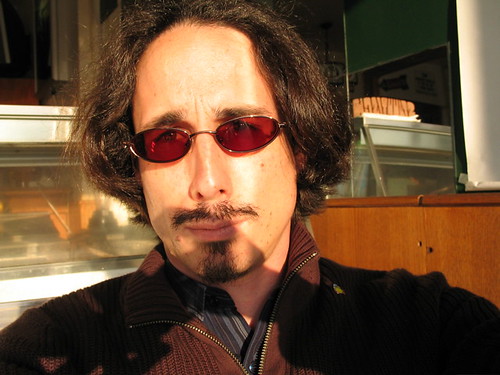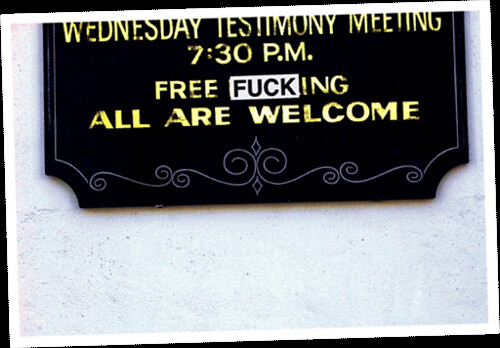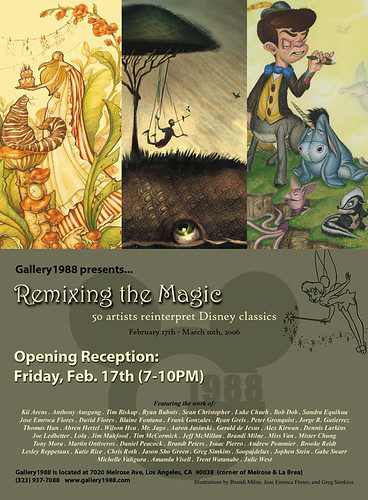Very interesting.
(subscription required)
The Happiest Wives - New York Times: "Freud confessed that his 'thirty years of research into the feminine soul' left him unable to answer one great question: 'What does a woman want?' Modern feminists have been arguing for decades over a variation of it: What should a woman want?
This week two sociologists from the University of Virginia are publishing the answer to a more manageable variation. Drawing on one of the most thorough surveys ever done of married couples, they've crunched the numbers and asked: What makes a woman happy with her marriage?
Their answer doesn't quite jibe with current conventional wisdom. Three decades ago, two-thirds of Americans surveyed said it was better for wives to focus on homemaking and husbands to focus on breadwinning, but by the 1990's, only a third embraced the traditional division of labor. The new ideal — in theory, not in practice — became a partnership of equals who split duties inside and outside the home.
This new egalitarian marriage was hailed by academics and relationship gurus as a recipe for a happier union. As wives went off to work and husbands took on new jobs at home, couples would supposedly have more in common and more to talk about. Husbands would do more "emotion work," as sociologists call it, and wives would be more fulfilled.
That was the theory tested by the Virginia sociologists, Bradford Wilcox and Steven Nock, who analyzed a survey of more than 5,000 couples. Sure enough, they found that husbands' "emotion work" was crucial to wives' happiness. Having an affectionate and understanding husband was by far the most important predictor of a woman's satisfaction with her marriage.
But it turns out that an equal division of labor didn't make husbands more affectionate or wives more fulfilled. The wives working outside the home reported less satisfaction with their husbands and their marriages than did the stay-at-home wives. And among those with outside jobs, the happiest wives, regardless of the family's overall income, were the ones whose husbands brought in at least two-thirds of the money.
These male providers-in-chief were regarded fondly by even the most feminist-minded women — the ones who said they believed in dividing duties equally. In theory these wives were egalitarians, but in their own lives they preferred more traditional arrangements.
"Women today expect more help around the home and more emotional engagement from their husbands," Wilcox says. "But they still want their husbands to be providers who give them financial security and freedom."
These results, of course, are just averages. Plenty of people are happy with different arrangements — including Nock, who makes less than his wife and does the cooking at home. He says that nontraditional marriages may be a strain on many women simply because they've been forced to be social pioneers. "As society adjusts to women's new roles," he says, "women may become happier in egalitarian marriages."
But I'd bet there's a limit to egalitarianism. Consider what's happened with housework, that perpetual sore point. From the 1960's through the 80's, wives cut back on housework as husbands did more. In the 1990's, though, the equalizing trend leveled off, leaving wives still doing nearly twice as much of the work at home.
That seems terribly unfair unless you look at how men and women behave when they're living by themselves: the women do twice as much housework as the men do. Single men do less cooking and cleaning, because those jobs don't seem as important to them. They can live with unmade beds and frozen dinners.
Similarly, there's a gender gap in enthusiasm for some outside jobs. Men are much more willing to take a job that pays a premium in exchange for long hours away from home or the risk of being killed. The extra money doesn't seem as important to women.
In a more egalitarian world, there would be more wives mining coal and driving trucks, and more husbands cooking dinners and taking children to doctor's appointments. But that wouldn't be a fairer world, as Nock and Wilcox found.
The happiest wives in their study were the ones who said that housework was divided fairly between them and their husbands. But those same happy wives also did more of the work at home while their husbands did more work outside home. Nock doesn't claim to have divined the feminine soul, but he does have one answer to Freud's question.
"A woman wants equity," he says. "That's not necessarily the same as equality."














